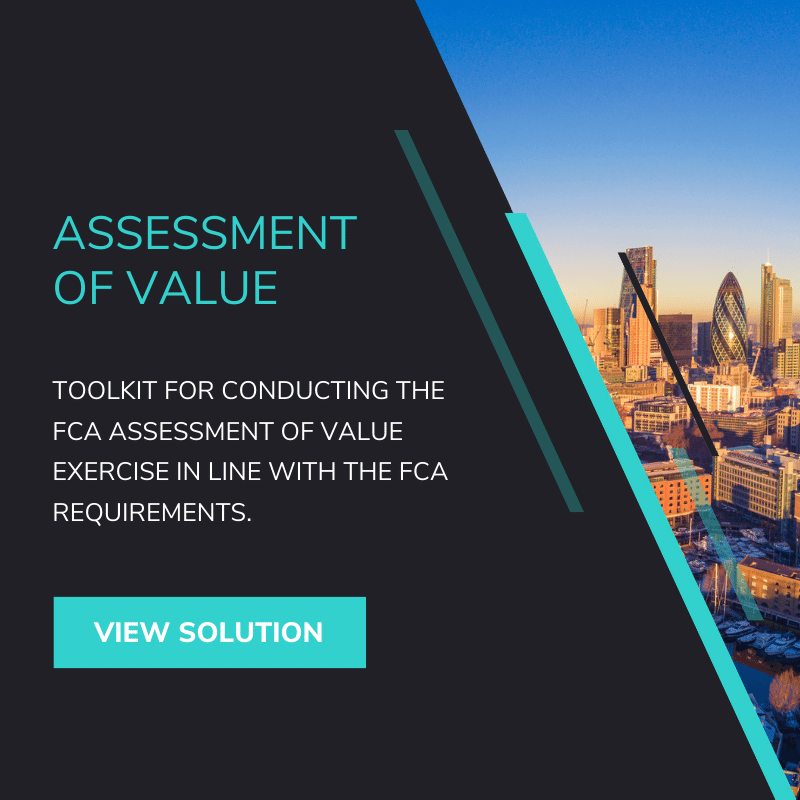New rules and prescribed responsibilities on assessing value for money now apply to UK Authorised Fund Managers in respect of their management of authorised open-ended collective investment schemes.
Whilst UK AFMs are currently busily engaged in the process of preparing their first reports, in this blog we give some thought as to where the FCA Assessment of Value requirements are likely to take us over the next few years.
In particular, we consider the following:
1. WHERE NEXT FOR UK AUTHORISED FUND MANAGERS?
Whilst year 1 will be a challenge for many groups and may see the bulk of the tidy-up as regards obvious cost-outliers, legacy RDR shareclasses and closet trackers, AFMs can expect further development over the next few years.
Given the particular lack of prescription as regards how the exercise is to be performed and the format of the annual report, we can expect the emergence of statements on good and poor practice that will lead to Managers having to make further improvements to their processes.
Although the FCA have been clear that the AOV process should consider all costs, it is likely that year 1 will see greatest focus on the OCF costs, with greater focus on the other costs thereafter.
In this regard, there are also certain areas where market data is currently patchy, but will likely improve over the next few years, partly in response to the demands of the FCA assessment of value process. This includes comparative cost information at a fund level for fees such as custody, fund accounting, transfer agency etc. Whilst information is available from report and accounts, it is not readily available in large industry-wide databases. Once it is, we can expect further cost scrutiny in these areas too.
Management companies’ profits may also come under the spotlight. Controversially, the FCA have stated that when considering the ability to achieve savings and benefits from economies of scale consideration also needs to be had to the direct costs … and whether it has grown or contracted in size as a result of sale or redemption of units.
2. IMPACT ON OTHER UK FUNDS AND ENTITIES
Initially, the requirements apply to UK AFMs in respect of their management of authorised open-ended collective investment schemes.
However, the FCA note that the Policy Statement will be of interest to insurers running unit-linked and with-profits funds, as well as to UK-listed investment trusts, given the potential for the extension of the AMMS remedies to those sectors.
Therefore, we should expect the extension of the AOV requirements into these other fund sectors over the next few years.
3. WHERE TO NEXT? EUROPEAN PERSPECTIVES
Whilst the UK FCA is leading the way with FCA Assessment of Value, it is clear that regulators at both EU and UK level are seeking to clamp down on poor value asset management offerings.
Both the revised Market in Financial Instruments Directive (MiFID II) and the Packaged Retail and Insurance-based Investment Products (PRIIPs) Regulation have introduced new requirements on product governance and investor disclosures. The Benchmarks Regulation has also resulted in guidance from ESMA on benchmark disclosure and past performance in KIIDs, including on disclosing an active or passive management strategy, and disclosure of performance against targets (even where the comparator is not a benchmark).
We should not be surprised to see the emergence in due course of a European Directive in respect of FCA Assessment of Value, particularly as a logical extension of current work on Closet Trackers.
4. CLOSET TRACKERS
Closet Trackers have been the focus of scrutiny across Europe and by ESMA.
As regards closet trackers in particular, which are an element of focus for FCA assessment of value, ESMA has also been scrutinising “closet-tracking” and disclosures on costs and past performance for retail investment products. See further our blog on Closet Trackers for further detail on this.
This is most notably seen in Ireland where closet tracking has been discussed in the Central Bank’s Letter of July 2019 on closet trackers, which identified 182 UCITS for review and has had follow-up engagements with 62 UCITS.
Notably, the last paragraph of the CBI’s Letter extends beyond Closet Trackers to include consideration of the appropriateness of the charges on all shareclasses and, as such, has striking resemblance to the FCA’s Assessment of Value requirements:
Furthermore, when assessing the investment managers annual presentation, the board should consider if the UCITS has delivered on the stated objective and remains a viable and suitable investment for investors. This review should be documented and assess, inter alia, the UCTIS performance, fee structure and investor base. The fees charged on all share classes within each UCITS should be reviewed to assess whether they are appropriate for the targeted level of outperformance of the UCTIS against its benchmark.
SUMMARY
What is clear is that where we are now is just the start of a European journey clamping down on poor-value offerings, with increasing scrutiny on the costs and performance of active fund managers.
An inevitable element of that journey will be the increasing amount of data-driven oversight and regulatory challenge to specific funds and fund groups, fuelled by the increasing ease of availability of whole-of-market data to Regulators and others.
There is much crystal-ball gazing now taking place as regards where this ultimately leads as regards total cost disclosures to investors, wholesale shifts from active to passive, the move towards a smaller number of larger funds, the impact on overall profitability of the investment management sector and the next wave of industry consolidation. There are challenging times ahead.
Request a Demo
Error: Contact form not found.













